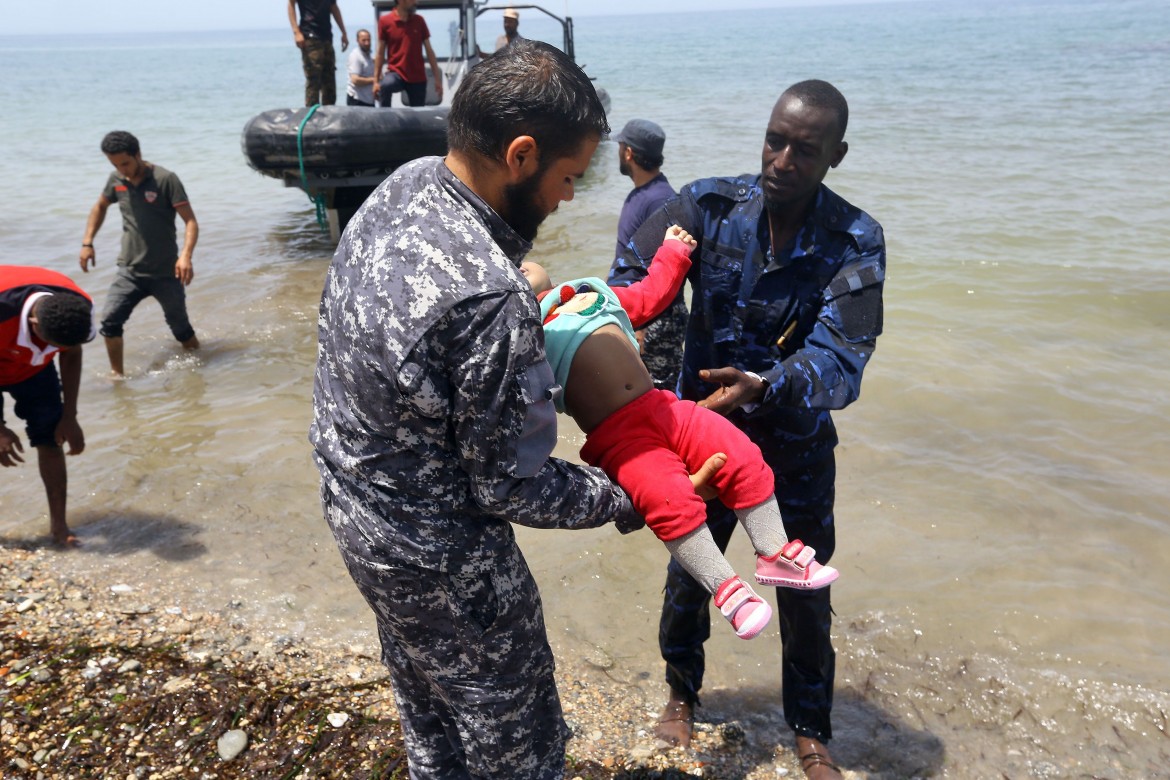Interview
Don Ciotti: ‘The duty to welcome is the basis of civilization’
The Rev. Luigi Ciotti talks about Europe’s duty to migrants. ‘We cannot call ourselves Christians and then build walls, build gated and exclusive communities, and cherry-pick and throw away our fellow human beings.’

Red T-shirts will be worn on July 7 “to stop the bleeding of humanity”—red like the one worn by Aylan Kurdi, the 3-year-old drowned in a shipwreck in the photo taken on the beach of Bodrum, Turkey, which shook the whole world three years ago; red like those that mothers make children wear before getting on the rubber boats, to make them more visible if it sinks; red like those worn by the three children who died in the shipwreck last week, around which a disgusting fake news operation has been set up.
The invitation for all to wear a red shirt on Saturday comes from a joint appeal addressed to all Italians by ANPI, Libera, Arci and Legambiente, as an individual and collective signal against the Italian policies of closure towards migrants. “Because red is the color that asks us to pause, to stop, to reflect, and then commit to action and get to work,” says the text of the appeal.
We spoke with Luigi Ciotti, the Italian priest who has become well known for his social work.
Don Ciotti, are there still Italians left today who would be able to remember, to have compassion and sympathy for what is happening to migrants? It seems that nobody wants to see the poverty and the calls for help anymore.
If any people has a duty to remember, it is ours, which has had a recent and impressive history of immigration to other countries, which was also full of suffering, hardships, humiliations and rejections thrown in our faces. There is a deficit in culture and memory, which results in a deficit in sensitivity—not only in Italy, of course. But we must also analyze and denounce what lies at the root of the fears, the prejudices, the forms of racism and fascism that are emerging: the social inequalities, the loss and degradation of work, an economy that the Pope described in no uncertain terms as “plunder” and “unjust to the core.” The great migrations are for the most part induced deportations. No one abandons their land, their home and everything they hold dear if not compelled by poverty and wars, which the West is largely responsible for.
And what about Europe? The borders are being externalized, walls and barbed wire are being put up, authoritarian and corrupt governments are being paid off to imprison migrants. These proposals are coming mostly from members of the Christian-Democrat European People’s Party: are these the Christian roots of Europe?
Authentic Catholicism has its roots in the Gospel, in its spirit and in its words, which are words of acceptance, dignity, peace and justice. We cannot call ourselves Christians and then build walls, build gated and exclusive communities, and cherry-pick and throw away our fellow human beings. To be called a Christian, you have to be, like Jesus, on the side of the poor, the weak, those oppressed and discriminated against—otherwise it is all just words. A Christian cannot remain idle in the face of injustice in this world. They must look towards Heaven without neglecting the responsibilities that bind them to this Earth.
The previous government had already threatened to close the ports to the ships of the humanitarian NGOs, which has now happened—already during the campaign for the local elections. Will this situation last? What could happen in the future?
The duty to welcome and give rescue are the very basis of civilization, a duty written in the conscience before any written commandments. If this duty disappears, the bleeding out of humanity is likely to be impossible to stop. The call to wear red shirts is a call to stop, to reflect, to no longer just look in the mirror, but to look inwards and ask ourselves what we have done with our humanity, and what kind of world we are leaving for young people, those who are children or babies now.
Isn’t there a need for an even stronger demonstration of civil disobedience, of showing indignation and revolt, like the example of Danilo Dolci? Or for assemblies and workshops that would create a widespread alternative culture, like the Social Forum in Florence did?
The word “indignation” is overused, and inappropriate. In these cases, we must speak of disgust, of that disgust that awakens consciences and saves them from a passivity that turns them into accomplices. Of course, assemblies, gestures and signs are important (and Danilo Dolci was a master in this)—but then you have to organize the dissent, turn it into a project and a hope. We, in our own small way, are doing this with our “Numeri Pari” (“Equal Numbers”) network, active in many parts of Italy, working on the issues of poverty and social injustice. Change has three necessary pre-requirements: continuity, sharing, co-responsibility. In an age in which words are being abused—with the consequences we all know: slogans, oversimplification, manipulation—the real change comes from real facts, from their own language, which may be silent, but it is clear and profoundly true.
Originally published at https://ilmanifesto.it/maglietta-rossa-trionfera-sabato-dress-code-di-protesta/ on 2018-07-04
